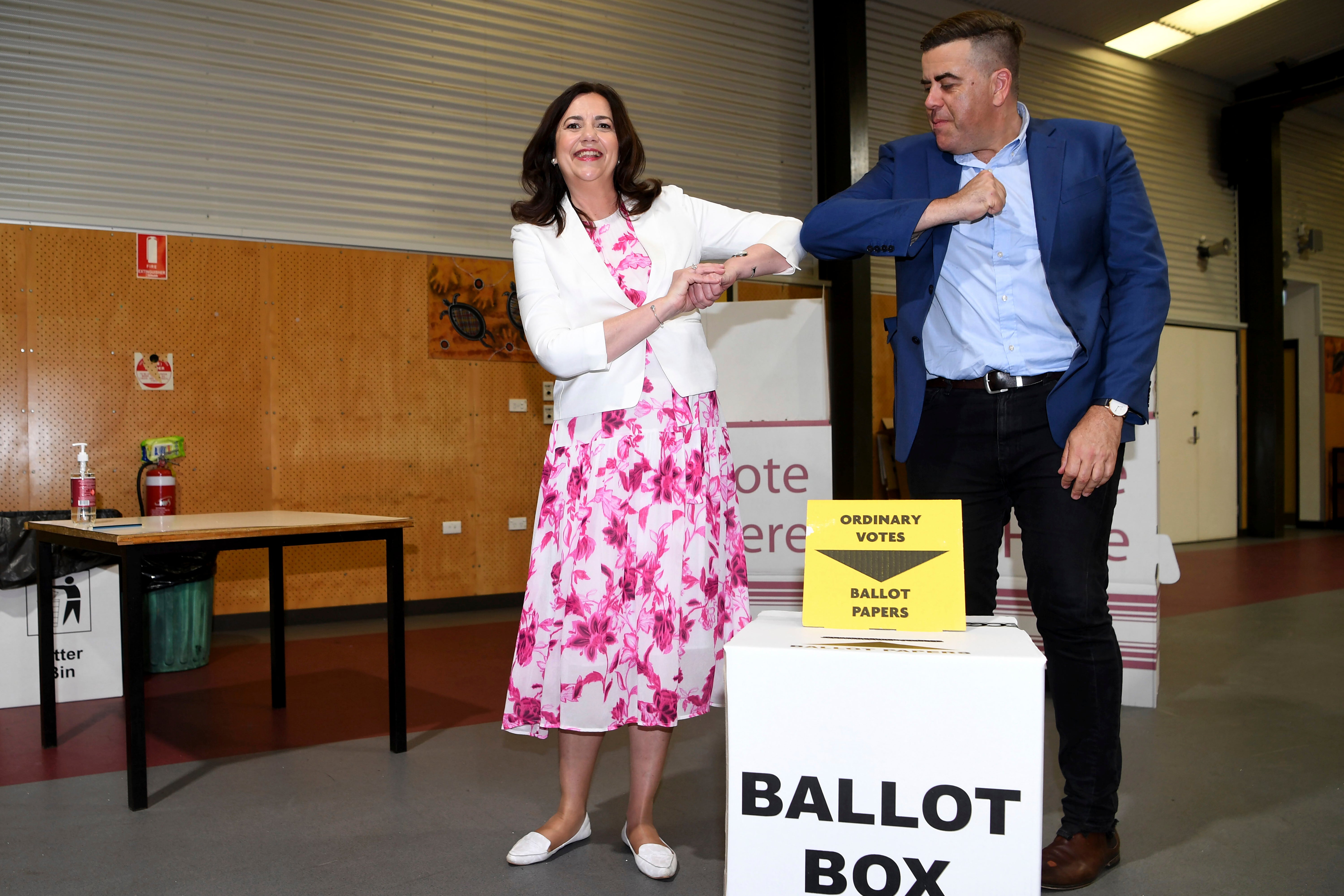Queensland premier wins state vote on tough virus response
The incumbent premier of Queensland has won a third consecutive term in Australian state elections in which voters strongly endorsed her government’s tough policies in response to the COVID-19 pandemic, including closing state borders

Your support helps us to tell the story
From reproductive rights to climate change to Big Tech, The Independent is on the ground when the story is developing. Whether it's investigating the financials of Elon Musk's pro-Trump PAC or producing our latest documentary, 'The A Word', which shines a light on the American women fighting for reproductive rights, we know how important it is to parse out the facts from the messaging.
At such a critical moment in US history, we need reporters on the ground. Your donation allows us to keep sending journalists to speak to both sides of the story.
The Independent is trusted by Americans across the entire political spectrum. And unlike many other quality news outlets, we choose not to lock Americans out of our reporting and analysis with paywalls. We believe quality journalism should be available to everyone, paid for by those who can afford it.
Your support makes all the difference.The incumbent premier of Queensland won a third consecutive term in Australian state elections in which voters strongly endorsed her government’s tough policies in response to the COVID-19 pandemic, including closing state borders.
Annastacia Palaszczuk, dubbed the “accidental premier” when she came to power unexpectedly in 2015, became the first female Australian political leader to win three consecutive elections.
Results on Sunday with 63.2% of votes counted showed a 5.2% swing in favor of Palaszczuk’s left-center Labor party, which had won 40.6% of the vote, ahead of the main opposition Liberal National coalition with 35.6%.
The anti-immigration One Nation party saw its vote fall from 13.73% in the 2017 election to 6.9% while the United Australia Party of mining magnate Clive Palmer managed only 0.57%.
Palaszczuk campaigned on her strong response to COVID-19 — there have only been six virus deaths in the state. She acknowledged in declaring victory on Saturday night that the cost of the pandemic response had been high.
“For many Queenslanders, I know it has been an incredibly tough year,” Palaszczuk said. “It has been tough not being able to see your family and friends in other states or even around the world as we’ve been in the midst of a global pandemic."
Her main challenger, LNP leader Deb Frecklington, campaigned on the heavy toll Labor’s border policies have taken on Queensland’s tourism industry. The Great Barrier Reef straddles most of the top half of the state, while the Gold Coast tourist strip south of Brisbane particularly popular with Asian visitors, has also sustained big losses.
But voters appeared to endorse Palaszczuk’s handling of the pandemic. Election observers suggested older former LNP voters, mindful of the pandemic response, may have switched their support to Labor.
In a trend following that of next week’s U.S. presidential election, more than 1.28 million of 3.3 million eligible voters in the so-called Sunshine State voted ahead of election day. A further 905,806 postal votes had been issued, of which 571,095 had been returned by Saturday. Voting at all levels of government in Australia — federal, state and municipal — is compulsory.